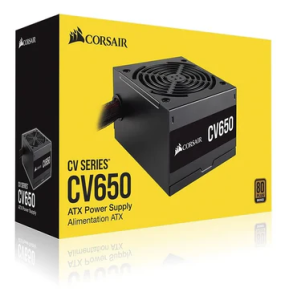Commercial Ice Machines: An Essential Asset for Business Operations
3 min read
Introduction
Commercial Ice Machine are vital appliances across various industries, ensuring a steady and reliable supply of ice. From hospitality to healthcare, these machines support numerous functions, enhancing service quality and operational efficiency. This article explores the importance, types, technology, applications, and maintenance of commercial ice machines, underscoring their critical role in business operations.
Importance of Commercial Ice Machines
Ice is essential in many industries for a variety of reasons:
1. **Food and Beverage**: Ice is indispensable in restaurants, bars, and cafes for cooling drinks and preserving food.
2. **Healthcare**: Hospitals and clinics use ice for patient care and medical procedures.
3. **Hospitality**: Hotels and resorts rely on ice machines to meet guest demands.
4. **Retail**: Supermarkets and seafood markets need ice to maintain the freshness and display of perishable goods.
Types of Commercial Ice Machines
Commercial ice machines come in several configurations, each designed to meet specific needs:
1. **Modular Ice Machines**:
– **Usage**: Suitable for large-scale operations in restaurants, hotels, and healthcare facilities.
– **Features**: High production capacity, requires separate storage bins or dispensers.
– **Pros**: Customizable setup, scalable.
– **Cons**: Requires more space and additional equipment.
2. **Undercounter Ice Machines**:
– **Usage**: Ideal for smaller spaces like bars, cafes, and small restaurants.
– **Features**: Compact design with built-in storage bins.
– **Pros**: Space-efficient, convenient installation.
– **Cons**: Lower production capacity compared to modular units.
3. **Countertop Ice Makers and Dispensers**:
– **Usage**: Common in healthcare settings and offices.
– **Features**: Combines ice making and dispensing in a compact unit.
– **Pros**: Easy access, saves space.
– **Cons**: Limited to small to medium ice production.
4. **Combination Ice and Water Dispensers**:
– **Usage**: Suitable for break rooms, cafeterias, and some healthcare settings.
– **Features**: Dispenses both ice and water.
– **Pros**: Dual functionality, space-saving.
– **Cons**: Moderate ice production capacity.
Technology Behind Commercial Ice Machines
Modern commercial ice machines utilize advanced technologies to ensure efficient and reliable operation:
1. **Refrigeration System**: Uses refrigerants to cool an evaporator plate, where water is frozen into ice.
2. **Water Filtration**: Ensures clean water supply by filtering impurities, essential for producing high-quality ice.
3. **Ice Harvesting Mechanism**: Involves heating the evaporator plate or using a mechanical arm to release the ice.
4. **Control Systems**: Electronic controls and sensors monitor ice production, optimizing performance and energy efficiency.
Applications in Various Industries
Commercial ice machines have diverse applications across different sectors:
1. **Hospitality**:
– **Restaurants and Bars**: Essential for beverage service, food preparation, and presentation.
– **Hotels and Resorts**: Provide guests with ice for personal use and support dining services.
2. **Healthcare**:
– **Hospitals and Clinics**: Used for patient care, medical procedures, and preserving specimens.
– **Nursing Homes**: Ensure resident comfort and care.
3. **Food Retail**:
– **Supermarkets**: Maintain the freshness and presentation of perishable goods.
– **Seafood Markets**: Optimal for storing and displaying seafood.
4. **Corporate and Educational Institutions**:
– **Offices and Schools**: Supply ice for cafeterias and break rooms, enhancing employee and student comfort.
Maintenance and Care
Proper maintenance is crucial for the longevity and efficiency of commercial ice machines. Key maintenance tasks include:
1. **Regular Cleaning**: Prevents build-up of mold, bacteria, and mineral deposits. Cleaning schedules vary but generally involve monthly or quarterly deep cleaning.
2. **Filter Replacement**: Regularly replace water filters to maintain water quality and prevent machine damage.
3. **Routine Inspections**: Check for leaks, unusual noises, and ensure all components are functioning correctly.
4. **Professional Servicing**: Annual professional maintenance can help detect and resolve potential issues before they cause significant problems.
Conclusion
Commercial Ice Machine are essential assets in the food service, hospitality, healthcare, and retail industries. Their ability to produce large quantities of high-quality ice efficiently supports a wide range of applications, from cooling beverages to preserving food and providing medical care. Understanding the different types, technologies, and maintenance requirements of these machines can help businesses choose the right equipment and ensure optimal performance, thereby enhancing service quality and operational efficiency.



